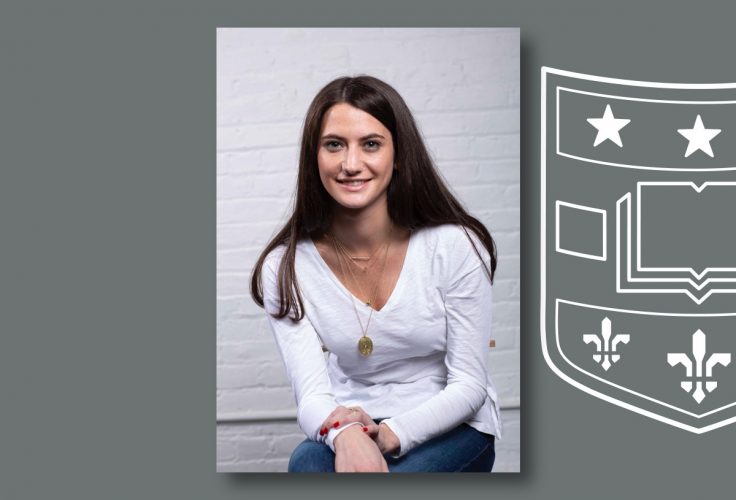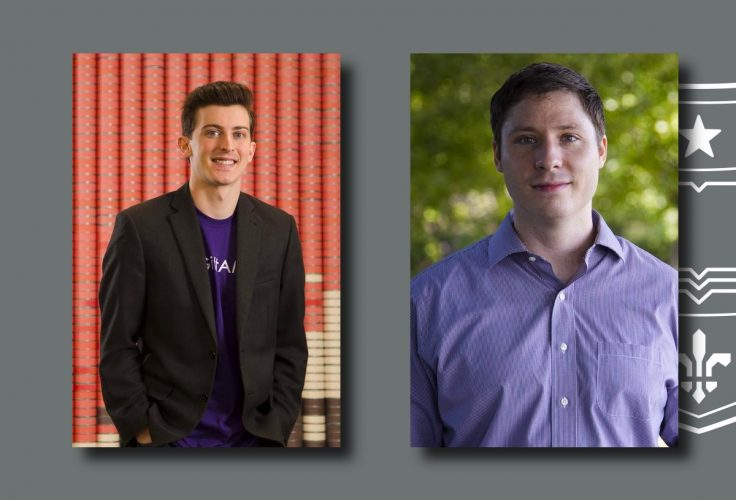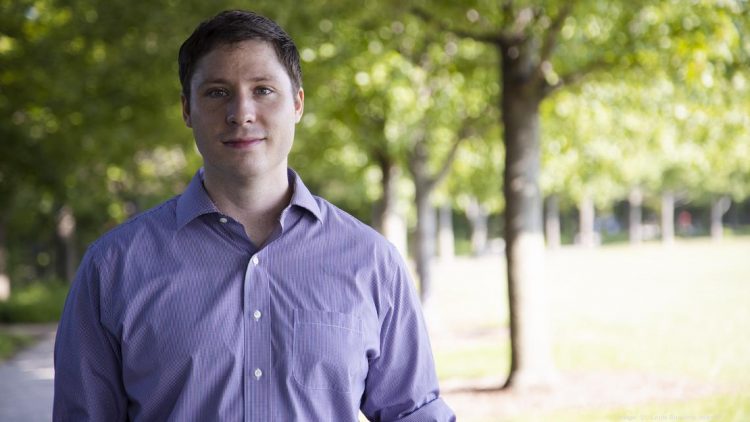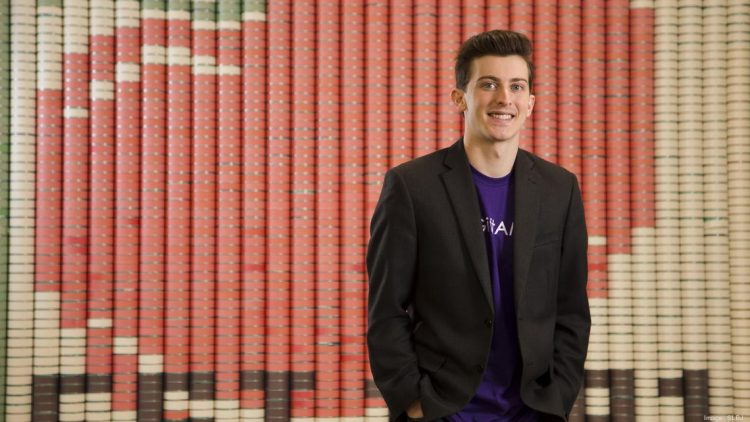Diane Keaggy, Campus Life senior news director in University Marketing & Communications, originally wrote this for The Source.
Washington University in St. Louis sophomore Aisha Adedayo could not afford an unpaid internship this summer. And Cam Loyet, a 2021 graduate of Olin Business School and founder of Honeymoon Chocolates, could not afford to add payroll to his burgeoning startup.
Still, they had so much to offer each other. Adedayo had energy and an entrepreneurial spirit, while Loyet had experience launching a successful brand.
Enter the St. Louis Entrepreneurial Fellowship, one of 11 Washington University programs that pays students to intern at St. Louis nonprofits, startups and businesses. An initiative of the Skandalaris Center for Interdisciplinary Innovation and Entrepreneurship, the yearlong fellowship provides fellows a $3,000 stipend and free university housing so they can live and learn in St. Louis.

“St. Louis has such a vibrant startup scene, and I got to experience it firsthand,” said Adedayo, who, along with sophomore Gabriela Pedreros, worked at Honeymoon Chocolates’ retail store and commercial kitchen in Clayton. Adedayo, a member of the Beyond Boundaries program, is a student in Olin Business School, as is Pedreros. “I helped increase conversion through conducting email marketing, organizing events, shooting product photographs and redesigning the packaging—basically whatever was needed in the moment.”
This summer, Washington University programs distributed stipends totaling some $625,000 to about 165 students who had unpaid or underpaid internships in the St. Louis region. The students worked in nearly every field, administering medicine to sick animals at the Wildlife Rescue Center, studying drug-delivery systems for med-tech startup UN & UP, directing young actors at the Center of Creative Arts, investigating pollution complaints for the Great Rivers Environmental Law Center, and more.

In addition, the university paid more than 4,000 students approximately $27 million in wages for summer internships, fellowships, research positions and other campus jobs. Summer associates in the Office of Sustainability helped plan the university’s transition to EV fleet vehicles; interns in University Marketing & Communications wrote articles for the Record; and summer researchers at the Institute for Public Health conducted pediatric research.
And the Office of Undergraduate Research provided 106 students with $400,000 in grants to conduct independent, faculty-mentored research in St. Louis.
These real-world experiences on and off campus prepare students for future careers, strengthen the St. Louis region and fuel the local economy, said II Luscri, managing director of the Skandalaris Center. He said students who intern in St. Louis are more likely to start their careers here.
“Part of our job at WashU is to help prepare our students to succeed whether that be in their own business, a private company, a nonprofit organization, a government agency or a graduate program,” Luscri said. “We are lucky to be in a region that gives our students so many opportunities to be creative problem solvers. But we also have an obligation to St. Louis. The ‘in St. Louis’ of Washington University in St. Louis matters.”
Top photo: Aisha Adedayo learned about marketing, supply chain management and manufacturing during her summer internship at startup Honeymoon Chocolates in Clayton. Here, Adedayo consults with founder Cam Loyet, who earned a master’s degree in business administration from Olin Business School in 2021. (Photos by Paul Nordmann/Washington University)












